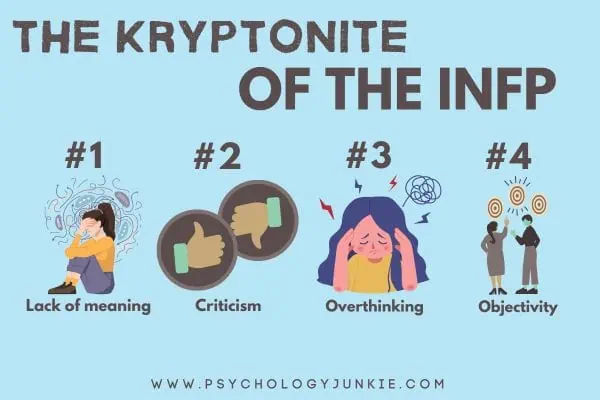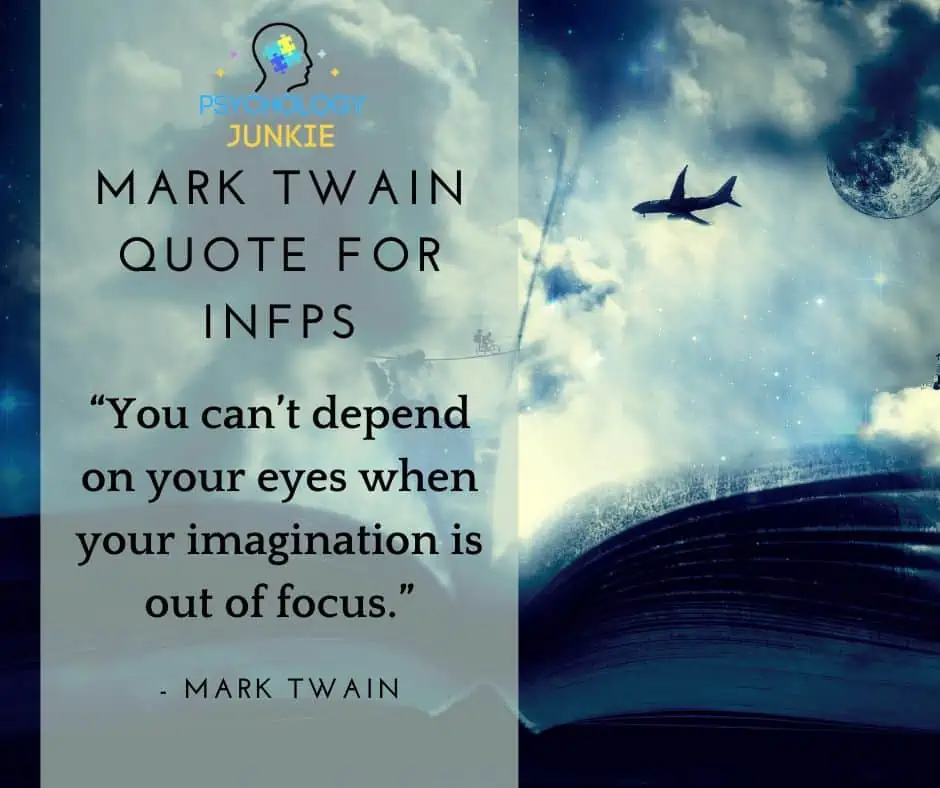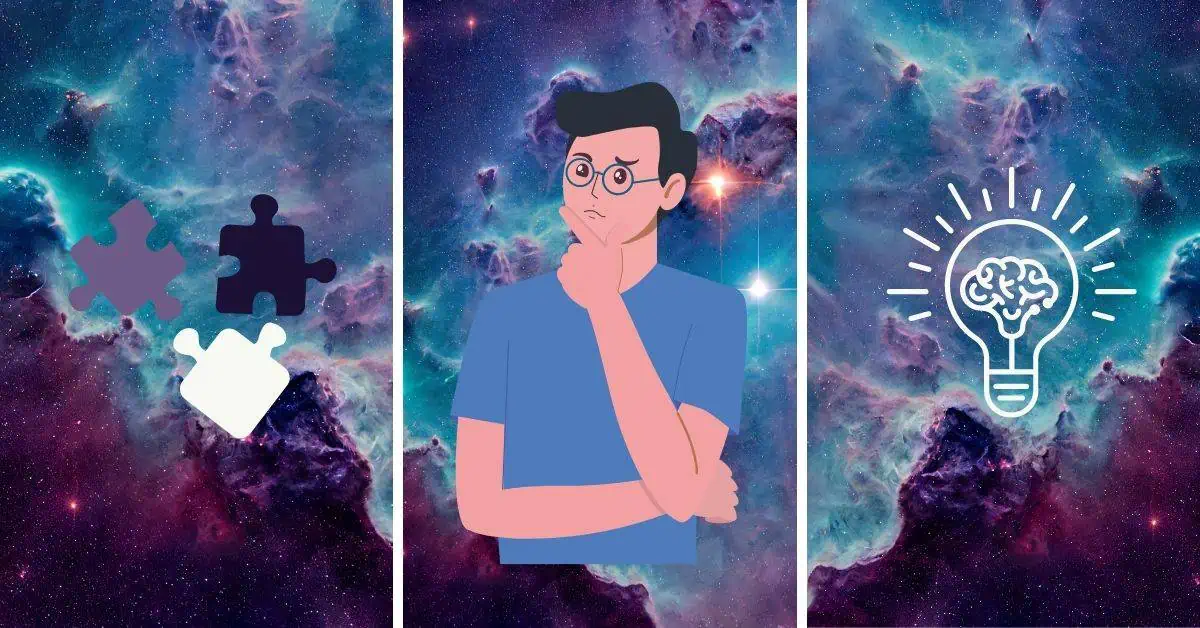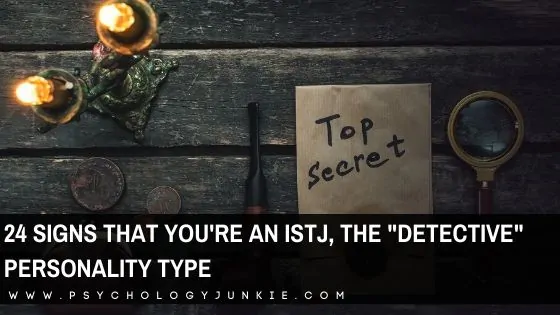The Dark Side of the INFP Personality Type
Ever wondered what an INFP in their dark side is like? Or maybe you ARE an INFP and you’re worried that you’ve entered your “evil” era. Whatever the case, I want you to relax. You’re not a villain. We all have a dark side that crops up from time to time. Today we’re looking at the INFPs. How does it arise? What sparks this mysterious turn? And how can you escape? Let’s find out!
But first of all, what is an INFP?
INFPs are all about ideals, imagination, and possibility. They are totally tuned into meaning, often looking for purpose in every moment, every experience, every…well, everything. If they’re gazing out the window, it’s not because they’re zoning out—it’s because they’re considering how the sunset represents the fleeting nature of existence. Probably.

For those who don’t know, INFP stands for Introvert, Intuitive, Feeling, and Perceiving. And for INFPs, these qualities mean they’re:
- Introverted: Time alone is a must. Social gatherings? Fun, maybe. But only if there’s a comfy spot to escape to with a cup of tea and a good book.
- Intuitive: INFPs focus on possibilities over realities. Ask them what they saw in the forest today, and they might tell you about a life-altering metaphor they stumbled upon among the trees (or the plot to a new fantasy novel they’re writing).
- Feeling: Decisions come from the heart, not a spreadsheet. Logic is respected but won’t always win over a good gut instinct or a deep, personal value.
- Perceiving: Structure? Meh. Plans? Maybe… but let’s keep it flexible. Nothing crushes an INFP’s creativity like rigid schedules and color-coded agendas.
But here’s the thing: When these traits get pushed a little too far, we find ourselves on the path to the INFP “dark side.”
Not sure what your personality type is? Take our new personality questionnaire here. Or you can take the official MBTI® here.
The INFP Dark Side Triggers
Even the kindest souls can turn to the dark side when the right buttons are pressed. For INFPs, the following are some of the big triggers that can bring out their lesser-known shadows.
1. Stress

Stress for an INFP can be like accidentally triggering “deep introspection mode.” They dive into their minds, replaying interactions, decisions, and emotional moments—often convinced they missed some deeply important detail or offended someone without realizing it. Every past mistake comes to the forefront of their mind, and life starts to feel too loud, too overwhelming, too demanding, just “too much.”
One INFP I worked with described how she would “zone out” for hours after a stressful situation, convinced she’d somehow messed up or disappointed everyone in her orbit. She’d analyze, replay, and obsess over every detail until she was exhausted. Meanwhile, her inbox, laundry, and life in general piled up.
Stress can also make INFPs withdraw, and not in a pleasant, “let’s cozy up with a book” way. It’s more like, “Let’s retreat to a mental bunker and brace for all possible emotional catastrophes.” They might ignore social commitments, avoid friends, and end up feeling isolated—all while being too overwhelmed to reach out.
What makes an INFP feel stressed? Here are just a few things:
- Rigid rules and schedules
- Having their values violated
- Not enough time alone. Too much socializing.
- Too many demands on their time
- Meaningless relationships
- A lack of authenticity from others
- Having their creativity stifled
- Having to focus too extensively on sensory/concrete details
- Criticism or confrontation
2. Immaturity
An immature INFP might be a little more intense about their ideals. They become so attached to their beliefs that they struggle to see other points of view. It’s like they’ve created a powerful fort of personal rules for being a “good person”, and you are not getting in unless you pass an extensive moral and philosophical background check.
One young INFP told me he would instantly distrust anyone who didn’t share his same favorite authors, assuming they “just didn’t get it.” He felt misunderstood, isolated, and, ironically, very alone—without realizing he was holding people to a set of rules only he was aware of.
This can also look like chasing new dreams, relationships, or hobbies at the speed of light—always convinced the next thing is “the one” that will finally make everything make sense. Of course, reality doesn’t work that way, and when things inevitably fall short, these INFPs may withdraw and go back to the drawing board, starting all over again.
3. The Fi-Si Loop

This one sounds technical, but it’s basically an INFP becoming a shut-in who won’t leave their comfort zone. It happens when they get trapped in a loop between Introverted Feeling (Fi) and Introverted Sensing (Si), ignoring their more adaptable, adventurous Extraverted Intuition (Ne).
In this loop, they’re all about how they feel and what’s familiar. Picture an INFP who’s replaying a past argument on an endless loop, convinced they could have done something differently. They focus on past hurts, past wins, and anything that feels comforting (even if it’s just wallowing in old emotional wounds).
When they’re in this mode, life outside can seem too unpredictable, too complex, too “ugh.” They become increasingly protective of their routines, their small circle, and their tried-and-true comforts. I had an INFP client once who would avoid trying any new social situations, convinced “nobody would understand them” if they heard his thoughts. He’d spiral, feel unheard, and then spiral again—while barely leaving his apartment. The good news? Through some bravery and hard work he eventually was able to break out of the loop through spending time in nature with his family. Starting small with easy activities and then building helped him re-forge the relationship with his Extraverted Intuition. So there IS hope! Always.
INFP Insecurities: The Path to Anxiety, Isolation, and the Past Replayed
INFPs are driven by a core set of values and ideals. They want to live a life that aligns with their deepest beliefs and need to feel authentic in their actions. But this strong desire to live “true to self” can also make them feel vulnerable—especially in a world that often values practicality over ideals, and bluntness over sensitivity. Let’s dive into how this insecurity can push them toward their dark side, where anxiety, isolation, and a constant mental “replay” button start to take over.
Anxiety and the Inner Critic
At the heart of an INFP’s insecurity is a question that many of them wouldn’t dream of asking out loud: Am I good enough? They might feel unsure about whether their ideas are practical or if they’re making a meaningful impact. INFPs can be their own toughest critics, replaying interactions and second-guessing every response: Did I say the right thing? Did I come across as too intense?
I’ve worked with INFPs who can’t stop wondering if they’ve disappointed someone. They’d lie awake, analyzing every word of a conversation, convinced they were misunderstood or secretly judged. One INFP told me he’d sometimes apologize for ways his words could have been misinterpreted—just in case someone might have taken something he said the wrong way.
This kind of thinking easily leads to anxiety, with INFPs worrying about every “what if” and hypothetical scenario, no matter how unlikely. While other types might brush off a critical comment, INFPs can carry it like a splinter they just can’t remove. It stays under the skin, feeding a quiet storm of self-doubt and insecurity.
Isolation: When the World Feels Too Much

When their insecurities build up, INFPs may start to feel like they don’t quite fit anywhere. They see a world that often seems loud, overly practical, or even a bit shallow, which can make them feel out of sync. If they start to believe that no one “gets” them, they may retreat inward, surrounding themselves with only their own thoughts and feelings—where things feel safer and less complicated.
This isolation can take many forms. Some INFPs withdraw from social settings, preferring the company of their own mind. Others might still interact but will keep their truest selves hidden, convinced that no one would understand the “real” them. I remember an INFP client who’d show up to every social event but would say only a few words the entire time. When I asked him why, he shrugged, saying, “I’m there, but I’m not really there.”
In these moments, INFPs often cling to their familiar routines, habits, and comforts. They may feel a sense of relief being away from the world, but over time, this isolation feeds their insecurities, making them even more uncertain of how they’ll be received if they do venture out.
Negative Replays from the Past
For an INFP in “dark side” mode, the past is a rich, endlessly revisited playground—especially the negative bits. They may replay hurtful comments, awkward moments, or perceived failures over and over, analyzing every detail and wondering if they could have done things differently. It’s as if they’re watching a bad movie on repeat, hoping this time it will end differently.
INFPs are particularly prone to fixating on moments where they felt misunderstood, embarrassed, or unappreciated. One INFP I worked with told me she’d replayed a conversation from two years ago, still wincing over something she wished she’d said differently. For her, that memory wasn’t “old”; it was alive, vivid, and just as painful as it had been the first time around.
These replays are often fueled by a feeling of “not enough”—not assertive enough, not clever enough, not expressive enough. It’s a negative spiral where each replay makes them feel more disconnected, less understood, and even more reluctant to take risks in the future. Ironically, the very qualities that make them so reflective and insightful are also what make it so easy to get stuck in these mental loops.
Insecurity, left unchecked, can turn an INFP’s greatest strengths—empathy, introspection, idealism—into a breeding ground for anxiety, self-doubt, and self-imposed solitude. But recognizing this pattern is the first step to moving out of the shadows. In the next section, we’ll talk about how INFPs can break free from these replays, manage anxiety, and stay connected to the world without losing their authenticity.
Finding the Beauty of the World and the Good Within
When INFPs turn the page from insecurity and isolation, they often find themselves in a world that’s richer, brighter, and far more beautiful than they remembered. There’s this shift—sometimes gradual, sometimes sudden—where they start to see the endless potential around them and the possibilities they’d forgotten. And in this awakening, they discover that the world and their own inner world have so much more to offer.
The Imagination Reignited

Imagination is like an old friend for the INFP, but one that can get quiet when insecurities take over. Once they start letting go of self-doubt, the imagination flares back to life. They remember the “what ifs” that weren’t “what if I ruin all my relationships and end up alone forever?” and they let go of constantly trying to be “good enough.”
One INFP I knew shared how he felt like he’d rediscovered an inner world he’d lost touch with. After years of feeling weighed down by daily life and fear of judgment, he started writing again. For him, the process wasn’t about achieving anything—it was just for the joy of creating, of giving life to ideas he’d been pushing aside. “It’s like I’m seeing things in color again,” he said. And it was true: when INFPs reconnect with their imagination, even the mundane can seem full of possibility.
Tip: Brainstorm your way to joy.
Grab a notebook and let yourself “free-write” all the wild ideas you can think of. Think big, think weird—whether it’s dreaming up with a new book idea or coming up with ten ways you’d redesign the world if you were in charge. The goal here isn’t to make sense; it’s to remind yourself that your imagination is a superpower.
And if you’re feeling particularly daring, try one of these ideas out in real life.
The Beauty of the World: Seeing the Big Picture Again
When an INFP steps out of the “dark side,” they start to see the world less as a place that might judge or misunderstand them, and more as a vast playground of inspiration, beauty, and wonder. They’re often drawn to nature, art, or even small moments of kindness—anything that reminds them of the good in the world.
I had an INFP client who began taking long walks in nature whenever life got too hectic. She described how just watching the sunlight gleam through the leaves or listening to the wind was like therapy for her. These moments reminded her that life was more than her worries and that there was an entire world outside of her mind that was waiting to be experienced. For INFPs, these small, mindful experiences can be deeply healing. They remind them that there’s beauty all around and that they don’t have to stay confined in their heads.
Tip: Pretend you’re an alien.
No, really. Next time you’re feeling disconnected, try looking at the world like you’re seeing it for the first time. You might ask yourself, “What is this strange, fascinating object called…bread?” or “Why are humans always rushing?” Take in the details, the colors, the sounds, and the “big picture” of it all.
If you’re around people, observe their quirks like you’re conducting a little (harmless!) experiment. Watch how someone laughs, or the way they talk with their hands. Life is full of little treasures when you give yourself permission to look closely.
Rediscovering the Good Inside
One of the most important parts of an INFP’s journey is realizing that they are enough—that there’s good in them, just as they are. INFPs are naturally hard on themselves, always pushing to be more authentic, more compassionate, more true. But when they give themselves permission to be human, flaws and all, they find a gentler, kinder side of self-reflection.
Self-forgiveness is a big piece of this puzzle. For some INFPs, it’s a matter of looking back at those “cringe” moments they’ve replayed and saying, “Okay, that was awkward, but it’s done, and that’s just part of the human experience.” One INFP told me she started keeping a journal just for moments of self-forgiveness. She’d write down everything she’d been beating herself up over, from a missed deadline to an old argument. “I realized I’d never be that hard on a friend, so why was I doing it to myself?” she asked. This simple act of self-kindness opened her up to see her strengths and gave her room to actually enjoy her unique gifts.
Tip: High-five yourself for the little wins.
Start a mini tradition where, at the end of each day, you give yourself credit for three things you did well. These could be tiny wins, like “I remembered to water my plant” or “I managed not to overthink that text message”. Write them down, do a little victory dance, or give yourself an actual high-five if you’re alone (and if not, just go for it anyway—INFPs make their own rules).
And remember, being a human is hard sometimes, so take pride in showing up as yourself, flaws and all.
Mindfulness and Experience: Grounding in the Moment
Mindfulness is a powerful tool for INFPs, helping them stay present and connected to their surroundings instead of getting pulled into the maze of self-defeating thoughts. When they’re grounded in the here and now, INFPs become more open to new experiences and less likely to retreat inward. The trick is learning to let thoughts come and go without clinging to them—like watching clouds drift by without trying to control the sky.
For INFPs, mindfulness isn’t just a way to manage stress; it’s a path back to their own sense of wonder. It reminds them that each moment holds beauty and that they don’t have to dwell in the past or worry about the future. They can simply be.
Tip: Become an “Everyday Poet.”
To stay grounded, try writing a “poem” about one small thing you noticed today. (And by “poem,” I mean literally anything that captures the moment in your own words—haikus are optional.) It could be about the way your coffee steamed in the sunlight or how the leaves made a patchwork of shadows on the sidewalk. The more specific, the better.
The goal here isn’t to win a Pulitzer Prize; it’s to keep you connected to your surroundings. By capturing these moments, you’ll find that they start to feel more vivid, more alive-and you may just be able to publish it someday!
What Do You Think?
Do you relate to the INFP dark side? Have you found some helpful ways to get out of a rut? I’d love to hear your thoughts!
If you’re an INFP, remember this: your imagination, empathy, and depth are gifts the world needs. Embracing who you are—quirks, dreams, and all—can unlock incredible potential for creativity, connection, and purpose. The journey to fully understanding and appreciating yourself can sometimes be a winding road, but there’s beauty in every step.
Take the Next Step
For those of you who want to dive deeper, I’ve written a book just for you: The INFP – Understanding the Dreamer. This eBook is designed to help you harness your strengths, navigate life’s challenges, and find clarity in a world that often feels like it wasn’t made with INFPs in mind. Here’s just a taste of what you’ll find inside:
- Insights into the INFP mind and how it works
- Strategies for handling stress and avoiding INFP pitfalls
- Creativity hacks to bring your ideas to life
- Compatibility guides and parenting tips
- Career advice tailored to your unique strengths
Whether you’re an INFP parent, in a relationship, or just looking for more clarity and confidence, this guide offers tools and tips to help you flourish. Here’s what one reader, Amelia, shared: “The INFP – Understanding the Dreamer was very insightful and gave me a lot of ways to understand myself better. I especially liked the creativity tips and learning about other famous INFPs. I’ll definitely refer to this book over the course of my life so that I can be happier and get out of stress or loop situations.”
If you’d like a more personal approach, I also offer coaching sessions, where we can explore your unique personality, goals, and challenges one-on-one. These sessions are tailored to help you make the most of your strengths and gain insights that bring more clarity, purpose, and joy to your life.
Thank you for being here, and remember: the world needs dreamers like you. Keep exploring, creating, and sharing that wonderful INFP magic!
Subscribe to Our Newsletter

Want to discover more about personality type? Get the inside scoop with Susan Storm on all things typological, along with special subscriber freebies, and discounts on new eBooks and courses! Join our newsletter today!













Another excellent article, Susan, thank you! I’m an INFJ, my best friend is an INFP, and this article hit me right in the empathy. The insights will be very valuable when I help her navigate difficult emotional situations